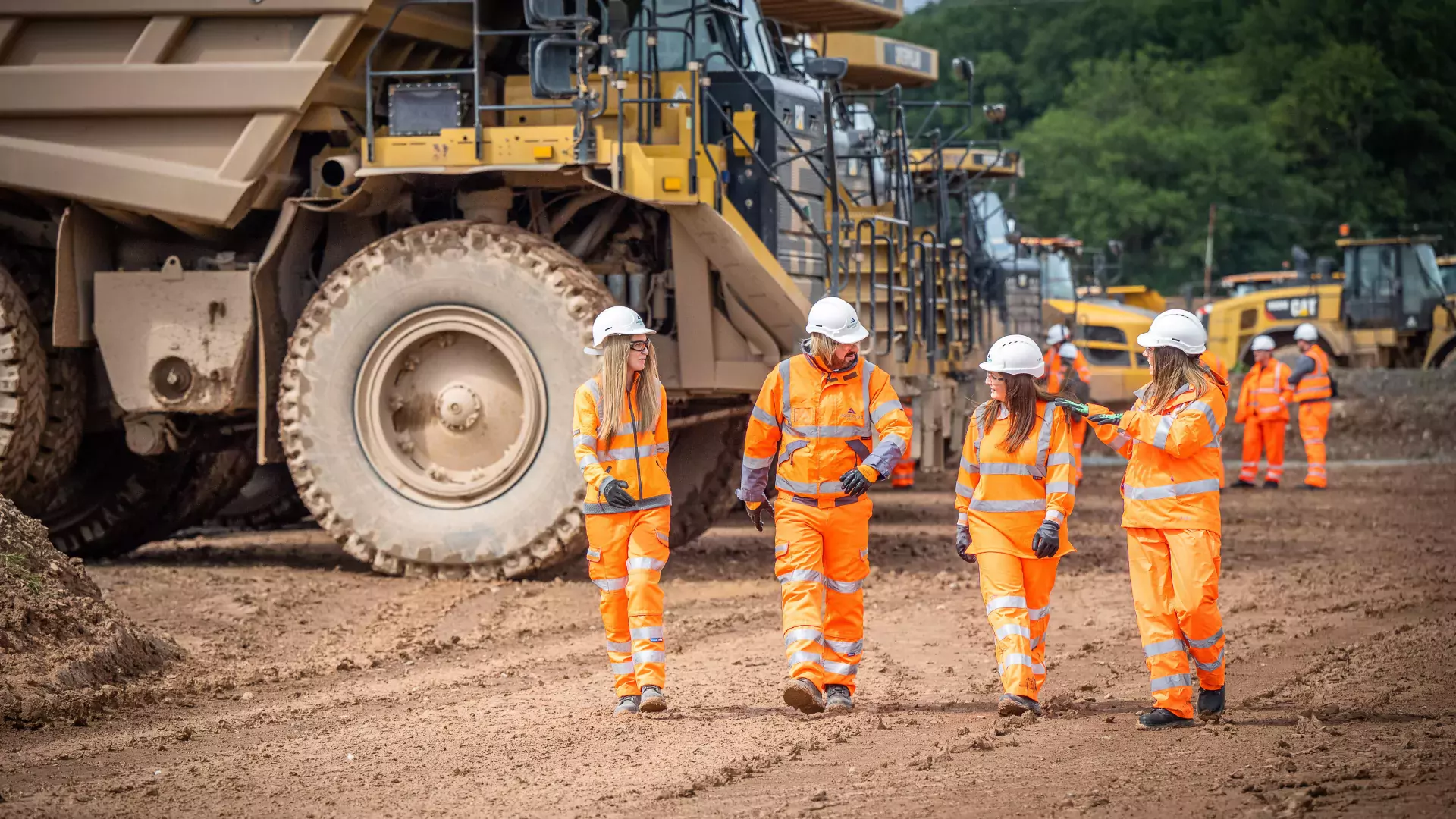Peak Cluster to provide £180 million per year economic boost starting this decade
Date of publication 08.11.23
A new report shows that Peak Cluster will impact very positively on Derbyshire, Staffordshire and Cheshire, delivering a £180m GVA boost each year.
- A new report shows that Peak Cluster will impact very positively on Derbyshire, Staffordshire and Cheshire, delivering a £180m GVA (Gross Value Added) boost each year.
- In addition, Peak Cluster will protect thousands of existing jobs and create many more.
- The project will capture carbon emissions from industry and transport them via pipeline to be permanently locked away.

A collaboration of industry, located in Derbyshire and Staffordshire, along with neighbouring industries in Cheshire, Peak Cluster will decarbonise 40% of the UK’s cement and lime industry.
The newly released report, by Mott MacDonald, into the economic benefits of Peak Cluster locally and nationally.
The report highlights Peak Cluster as generating an additional £180 million GVA every year, starting from the latter part of this decade. This is a major boost for the regional and national economy.
Peak Cluster will safeguard over 2,100 existing jobs and create a further 1,500 roles throughout the construction and lifetime of the project.
Peak Cluster is made up of four of the UK’s leading cement and lime producers - Tarmac, Breedon, Lhoist and Aggregate Industries, alongside the Lostock Sustainable Energy Plant, working together with Progressive Energy, a low carbon energy project developer. A partnership with the Morecombe Net Zero Cluster for storage of the captured carbon was recently announced.
Production of low carbon cement and lime will create value here in the UK as sustainably produced materials are essential for construction of critical infrastructure, such as roads, hospitals and schools.
The need for an acceleration of delivery of new dedicated infrastructure to facilitate carbon capture and storage was highlighted in the National Infrastructure Assessment published on 18 October. The assessment specifically highlighted the need for the Peak District to be part of that infrastructure.
John Egan, Peak Cluster project director, Progressive Energy said: “This report unequivocally demonstrates that decarbonisation of this vital sector is an economic, as well as an environmental, imperative. We have the opportunity to decarbonise 40% of the UK’s cement and lime, to reduce CO2 emissions from Derbyshire and Staffordshire by nearly a quarter and to enable domestic supply of sustainable construction materials - all whilst protecting and creating thousands of jobs.”
Dr Diana Casey of the Mineral Products Association, Executive Director, Energy and Climate Change, said: “Production of mineral products represents the largest flow of materials in the UK economy. The cement and lime sectors are an important part of this material flow and generate in the region of £300 million in GVA each year (MPA).
“To secure the low carbon future of these vital industries, carbon capture projects, including Peak Cluster, are necessary. Now this report demonstrates that decarbonisation also brings significant additional economic opportunity, providing further justification to accelerate deployment.”